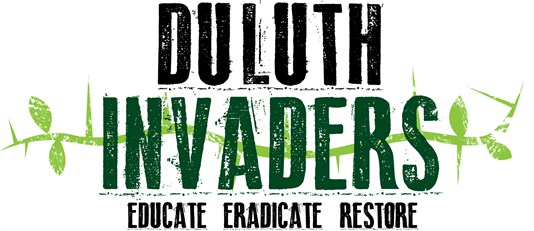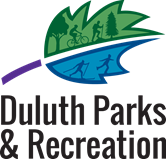Duluth Invaders

Duluth Invaders is a service initiative organized by the City of Duluth to mobilize citizen volunteers to assist in controlling and removing terrestrial invasive plants in our public green spaces. Currently, the City is only able to support these great volunteers at a minimal level, for example, lending out tools and holding an annual meeting. Hopefully in the future, we will be able to provide more support. The 2025 annual meeting for the Invaders was held at Hartley Nature Center on June 12.
Invaders Group Contacts:
- To borrow a tool or get a refilled blaster:
West side of Duluth - Parks Maintenance Coordinator, Abbie Hopper - 218-730-4331 or ahopper@duluthmn.gov
East side of Duluth - Hartley Nature Center Stewardship Coordinator, Matt Willey - 218-724-6735 or recreation@hartleynature.org - To request plant disposal / pickup:
Parks Maintenance Coordinator, Abbie Hopper - 218-730-4331 or ahopper@duluthmn.gov - General inquiries about land stewardship and land management in Duluth:
Project Technician, Tim Byrns - 218-730-4319 or fbyrns@duluthmn.gov ("f" is correct) - Volunteering general inquiries:
218-730-4343 or parkvolunteer@duluthmn.gov - To report additional invasive species sightings and locations:
Please use EDD Maps: https://www.eddmaps.org/
When we have funding and capacity to address certain species or certain areas we use EDD maps as a source of information.
New members to the Invaders are welcome, though a waiver form must be completed once a year. This form can be found here: https://forms.duluthmn.gov/Forms/Parks-Voluntary-Waiver
We are still collecting information about the good work that volunteers provide to our City. It is a webpage form that can be found here: https://duluthmn.gov/parks/volunteer/report-your-volunteer-hours/. You can fill it out as many times as you like.
Why are invasive species so bad?
- Invasive species often don’t have predators, so they are free to grow uncontested.
- They often are very adaptable to any type of habitat, growing almost anywhere there is a disturbance.
- They grow rapidly and choke out natural vegetation of the area, this often create monocultures.
- They alter habitats for natural plants and animals, changing the ecosystem.
- They are very expensive to remove and destroy, costing the United States an estimated 120 billion in damages annually.
Learn More!
Buckthorn (Common and Glossy)
Japanese Knotweed
Common Tansy
Garlic Mustard
Exotic Honeysuckle

